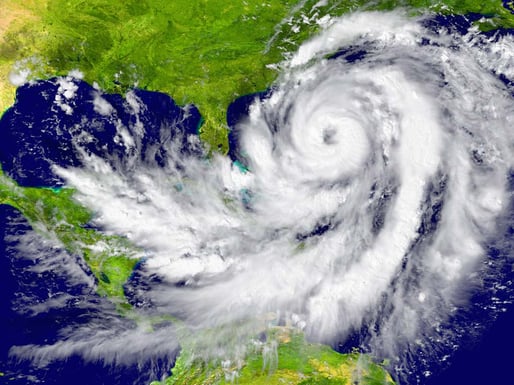Emergency Planning: Bertha's Early Entrance is a Warning

Early morning, Wednesday, May 27th, Tropical Storm Bertha made landfall in South Carolina.
Bertha was the second named storm of the year – Arthur hit North Carolina in May.
This is only the sixth time since 1842 that there have been two named storms before the official start of hurricane season on June 1st.
Further south, the day before Bertha’s arrival, a series of wildfires in the Florida Panhandle led to 27 people being sheltered by the Santa Rosa County authorities.
However, because of concerns about social isolation created by the coronavirus, they did not undergo the usual evacuation.
Packing residents into shelters such as high school gyms, which was often the practice in the past, is a great recipe to spread the virus.
Santa Rosa County reported that several emergency management directors from other counties had contacted them to learn more about how to handle a wildfire during a pandemic.
In case a tropical storm and wildfires was not a rich enough brew, at almost the same time, a 3.7 magnitude earthquake gave the area around Bakersfield, California, a shake.
The landfall of Bertha, the Florida wildfires and the Bakersfield quake took place in the 24 hours around the publication of last week’s blog, in which we addressed the demands of preparing for natural disasters while emergency planning resources are already stretched to the limit grappling with COVID-19.
When we began planning the latest of our crisis response Playbooks, focused on Natural Disasters, including hurricanes, other extreme weather events, earthquakes and wildfires, we had little idea of the extra importance this year of the topic.
While continuing to manage the impact of the global coronavirus pandemic, this is not the year to cut corners on emergency planning for natural disasters.
There is more information about the In Case of Crisis ‘Natural Disaster Playbook’ here.
Here are preparations that can be taken right now to ensure your disaster management team and plan are ready for whatever mother nature can throw at you in the coming months:
- Ensure the Disaster Management Team has a mobile solution, such as our own In Case of Crisis, that will enable members to receive information and connect at any time of day and night.
- Subscribe to a mass alert system to be deployed to warn employees at any site in the network that is facing an imminent threat from a natural disaster.
- Make sure local sites are trained on the mass alert system and have protocols in place to activate it quickly, if needed.
- Identify subject matter experts whose input may be required in a natural disaster, and where needed, contracts are signed, including:
- Meteorologists
- Structural Engineers
- IT resources
- Mental health/trauma counselors
- Media & social media specialists
- Transportation providers
- Telecoms services (for example - to set up Family Hotline)
- Provide templates for each site to develop a best-practice Emergency Response Plans– and set deadlines for completion.
- Check that all sites in the network have a fully developed and updated Emergency Response Plan.
- Ensure that IT systems across the network and all sites are backed up appropriately in the event of a loss of power and access during a disaster.
The Tampa Times in its 2020 Hurricane Guide, suggests extra considerations for when a hurricane strikes during a pandemic:
- Everyone will need masks – add a plentiful supply to your emergency resources.
- Shelters such as motels, where people can be in their own private space, are better than places such as school gyms, where people would be packed together.
- Have alternative shelters identified where people who show coronavirus symptoms can be quarantined.
- Anticipate a tougher recovery post-hurricane because of the economic hardships brought about by the pandemic.
Good luck – it is an unprecedented period for anyone involved in emergency response and issues management!
THE IN CASE OF CRISIS ‘NATURAL DISASTER PLAYBOOK’
RockDove Solutions created our Natural Disaster playbook, available on mobile devices via In Case of Crisis, to help organizations plan and respond to a range of naturally forming threats such as hurricanes, other forms of extreme weather, earthquakes and wildfires.
GET INFORMATION ON THE SPECIAL EDITION OF THE IN CASE OF CRISIS APP
SOURCES OF ALERTS AND UPDATES ON EXTREME WEATHER, EARTHQUAKES & WILDFIRES
The latest official national & international updates are available here:
- Homeland Security
- Environmental Protection Agency (EPA)
- US Department of Health & Human Services (HHS)
- FEMA Recovery Resources/Emergency Alert System
- National Oceanic & Atmospheric Administration (NOAA)
- Centers for Disease Control & Prevention (CDC)
- WHO
- National Weather Service
- Storm Prediction Center
- CNN
- World Meteorological Organization
- The Weather Channel
- Global Forest Watch – Fires
- Tornadohq.com
Learn how hundreds of organizations large and small are using our award-winning crisis management platform, In Case of Crisis, so you can be better prepared and respond faster to emerging threats like Coronavirus.








